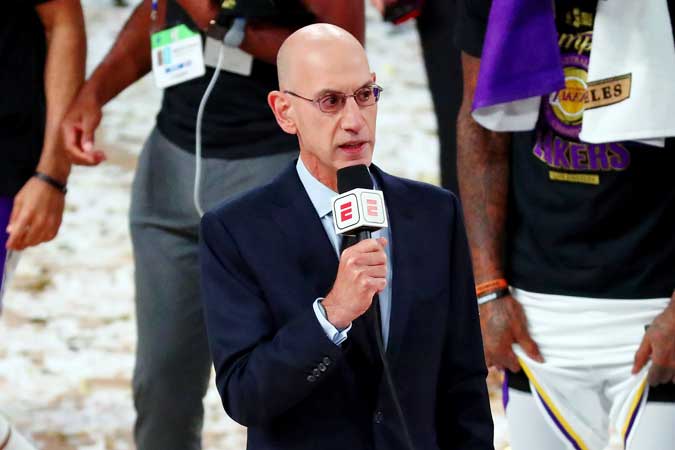
NBA commissioner Adam Silver addressed the topic of expansion on Monday, something that he has dismissed in previous years.
Although Silver said the league’s position hasn’t changed, he was quick to admit that the NBA has studied the ramifications of expanding beyond the current 30 teams.
“I think I’ve always said that it’s sort of the manifest destiny of the league that you expand at some point,” Mr. Silver said. “I’d say it’s caused us to maybe dust off some of the analyses on the economic and competitive impacts of expansion. We’ve been putting a little bit more time into it than we were pre-pandemic, but certainly not to the point that expansion is on the front burner.”
The NBA hasn’t added an expansion team since the Charlotte Bobcats (now Hornets) began play in 2004.
Speculation has revolved around Seattle being near top of the list, should the NBA approve another franchise. Seattle previously was home to the Supersonics, who moved to Oklahoma City in 2008 and became the Thunder.
One area of concern for Mr. Silver when it comes to expansion is competition level.
“You know, we’re very appreciative of the markets that have indicated an interest in having an NBA team,” Mr. Silver said. “One of the issues for the league office, and this comes up all the time in terms of competitiveness, it’s not a secret that we don’t have 30 competitive teams at any given time right now when you go into the season, measured by likelihood of ability to win a championship.”
Each potential expansion team would need to pay a sizeable entry fee, a number that could reach well over $1 billion, and rumored to be as high as $3 billion per franchise. Those funds would then be distributed to the current 30 teams, which operated during the end of last season without paying customers in the stands. It remains unclear when arenas might be full again.
“It’s an economic issue and it’s a competitive issue for us,” Mr. Silver said. “So, it’s one that we’ll continue to study, but we’re spending a little bit more time on it than we were pre-pandemic.” — Reuters
